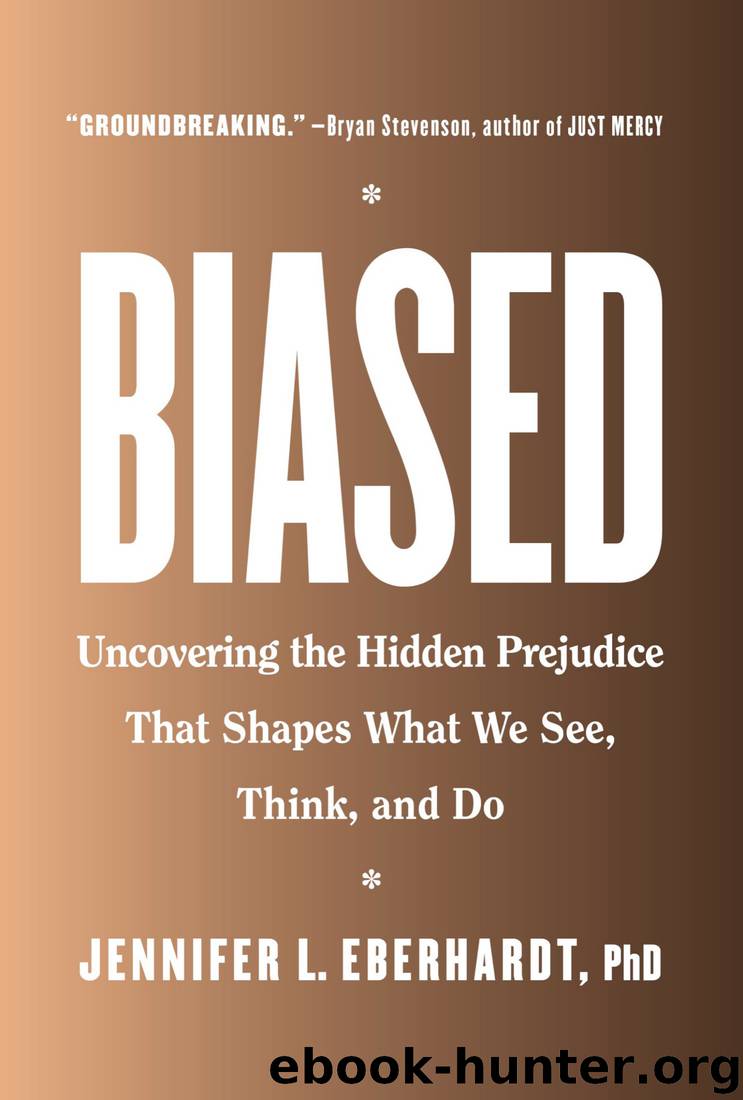Biased by Jennifer Eberhardt

Author:Jennifer Eberhardt
Language: eng
Format: epub
Publisher: Random House
Published: 2019-04-03T23:00:00+00:00
Research supports the notion that raising the issue of race and discrimination explicitly can lead people to be more open-minded and act more fairly, particularly when they have time to reflect on their choices.
The posting process was changed to require users to home in on behavior, pushing them past the “If you see something, say something” mind-set and forcing them to think more critically: if you see something suspicious, say something specific.
Adding friction to the process slowed things down a bit, but it did not lead to the huge drop-off in users that industry observers had predicted. What it did do was reduce the incidence of racial profiling: Nextdoor’s tracking suggests it is down by more than 75 percent. They’ve even adapted the process for international use, with customized filters for European countries, based on their mix of ethnic, racial, and religious tensions.
The approach offers benefits beyond reducing neighborhood animosity. That friction and the awareness it generates may make people more willing and better equipped to think and talk frankly about race. Conversations about racial issues in interracial spaces can be uncomfortable. It’s no wonder people tend to avoid them. Integration is hard work, and threat looms over the process. White people don’t want to have to worry that something they say will come out wrong and they’ll be accused of being racist. And minorities, on the other side of the divide, don’t want to have to wonder if they’re going to be insulted by some tone-deaf remark. The interaction required to move past stereotypes takes energy, commitment, and a willingness to let big uncomfortable issues intrude on intimate spaces—your home and your neighborhood.
Research shows that talking about racial issues with people of other races is particularly stressful for whites, who may feel they have to work harder to sidestep the minefields. Their physical signs of distress are measurable: Heart rates go up, blood vessels constrict, their bodies respond as if they were preparing for a threat. They demonstrate signs of cognitive depletion, struggling with simple things like word-recognition tasks.
Even thinking about talking about race can be emotionally demanding. In a study of how white people arranged the physical space when they knew they’d be in conversation with blacks, the arrangements varied based on the subject of those chats. When the study participants were told they’d be talking in small groups about love and relationships, they set the chairs close to one another. When they were told the topic was racial profiling, they put the chairs much farther apart.
Nextdoor can’t make the angst go away. But benefits accrue from nudging people to talk about race and consider the harm a thoughtless judgment can do. “What I have found is that this can be a personal journey,” Sarah said. “When you raise the issue with people, at first there might be a little bit of ‘Oh, come on.’ And then you explain and you get ‘Oh yeah, that makes sense.’ I think right now most people believe ‘I can only screw this up, so maybe I shouldn’t have that conversation.
Download
This site does not store any files on its server. We only index and link to content provided by other sites. Please contact the content providers to delete copyright contents if any and email us, we'll remove relevant links or contents immediately.
| General | Discrimination & Racism |
Nudge - Improving Decisions about Health, Wealth, and Happiness by Thaler Sunstein(7689)
The Fire Next Time by James Baldwin(5421)
iGen by Jean M. Twenge(5403)
Adulting by Kelly Williams Brown(4561)
The Sports Rules Book by Human Kinetics(4377)
The Hacking of the American Mind by Robert H. Lustig(4363)
The Ethical Slut by Janet W. Hardy(4236)
Captivate by Vanessa Van Edwards(3835)
Mummy Knew by Lisa James(3680)
In a Sunburned Country by Bill Bryson(3528)
The Worm at the Core by Sheldon Solomon(3478)
Ants Among Elephants by Sujatha Gidla(3458)
The 48 laws of power by Robert Greene & Joost Elffers(3219)
Suicide: A Study in Sociology by Emile Durkheim(3009)
The Slow Fix: Solve Problems, Work Smarter, and Live Better In a World Addicted to Speed by Carl Honore(3001)
The Tipping Point by Malcolm Gladwell(2903)
Humans of New York by Brandon Stanton(2864)
Handbook of Forensic Sociology and Psychology by Stephen J. Morewitz & Mark L. Goldstein(2691)
The Happy Hooker by Xaviera Hollander(2682)
